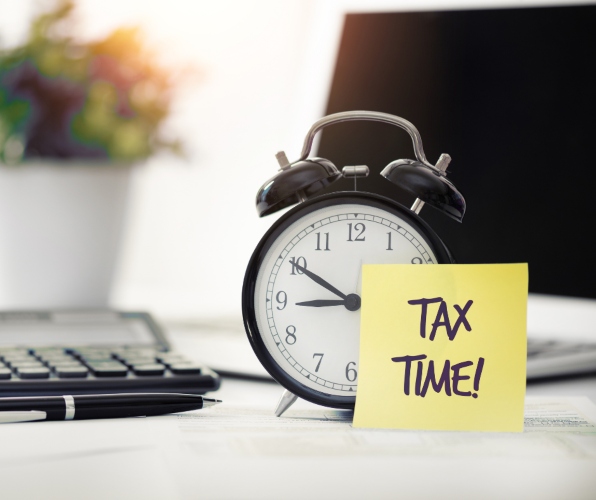A P11D form is a document used by an employer to list any expenses or benefits given to directors or employees. It is submitted to HMRC yearly and includes items or services such as private healthcare, company cars or season ticket loans. The P11D form is designed to inform HMRC of any taxable benefits that must be included in your self assessment tax return. There may also be National Insurance contributions to me paid on them by your employer.
Form P11D is a document your employer uses to tell HMRC about the employment benefits you're getting. We're talking about the little extras you get in addition to your salary, like company cars or private medical cover. Not absolutely everything has to be declared, but the list of things that do is pretty long.
The exact rules covering what has to be listed in a P11D are complicated, and change from time to time. Employers need to be very sure to keep the details accurate, though.
A P11D form features some basic identifying information about the employee (including their name, date of birth, National Insurance number and so on). The rest of the form will cover any benefits being given on top of their normal pay.
The form has sections dealing with everything from accommodation and mileage allowance (the standard AMAP rates still apply, of course) to vouchers and credit cards. HMRC uses this information to work out if the employee owes any tax on their benefits.
Form P11D is filed by employers. It’s worth keeping in mind that, depending on how their businesses are set up, even certain self-employed freelancers and contractors might have to file them. It’s perfectly possible to be both an employer and an employee in the same business.
The deadline for getting P11D forms filed is the 6th of July, whether you’re filing digitally or on paper. If another 2 weeks slip by, however, the penalties start to kick in. At that point, employers are generally looking at £100 of damage for every 50 people they employ – charged monthly.
Speaking of penalties, an employer can also find HMRC coming down hard on them if they get their P11D paperwork wrong. That generally only happens if it looks like it wasn’t an honest mistake, though.
Of course you do! Get a grip on your cash with our money saving tips, guides and videos sent straight to your inbox.
There’s actually another way of handling employees’ benefits-in-kind. Instead of filing P11D forms for each of the people working for them, employers can opt for the “Payrolling Benefits in Kind” (PBIK) system. Doing it this way means that the value of an employee’s benefits is calculated over the whole year and the tax on them taken out through the company payroll. When an employer does this, they have to let their employees know. The employees then get a statement showing the benefits that have been taxed, which has to be in their hands before the 1st of June after the end of the tax year.
Form P11D is used to report “benefits in kind”. Basically, we're talking about the little extras sometimes given in addition to an employee’s salary. Company cars or private medical cover are common examples, but there are plenty of others. Not absolutely everything has to be declared, but the list of things that do is pretty long, including things like:
As a general rule of thumb, if it’s not part of the employee’s basic salary then it could count as an employment benefit or benefit-in-kind.
As with most HMRC regulations, the exact rules covering what needs to be reported in a P11D will change from time to time. It’s important to keep the details up-to-date and accurate, though.
In principle, employees need to pay tax on most types of employment benefits they receive. However, HMRC cuts them a little slack on things like:
When you claim your tax rebate with RIFT, our unique RIFT Guarantee means that you don't have to worry about the taxman reclaiming any of your money. So long as you give us full and accurate information, if HMRC disagrees with the amount that we’ve claimed and ask for the money back, we’ll pay it. It won’t cost you a penny.

Your tax code is an important piece of information whenever you’re dealing with HMRC. Its main use is to work out the Income Tax and National Insurance Contributions (NICs) you’ll pay...

Making a budget, and sticking to it, really isn’t as tough as it looks. All it takes are a few simple rules and the determination to put them into practice. One of the best basic budgeting tips...

Let's be honest, nobody likes paying tax. How many times have you looked at your paycheque and thought; is this right? Did I really pay that much? It's important to keep a close eye on your...
RIFTAUTH1 - SchedulingPublisher
{ "@context": "https://schema.org", "@type": "BreadcrumbList", "itemListElement": [{ "@type": "ListItem", "position": 1, "name": "Home", "item": "https://www.riftrefunds.co.uk/" },{ "@type": "ListItem", "position": 2, "name": "Advice", "item": "https://www.riftrefunds.co.uk/advice/" },{ "@type": "ListItem", "position": 3, "name": "Tax Codes", "item": "https://www.riftrefunds.co.uk/advice/tax-codes/" },{ "@type": "ListItem", "position": 4, "name": "What is a P11D", "item": "https://www.riftrefunds.co.uk/advice/tax-codes/what-is-a-p11d/" }] }